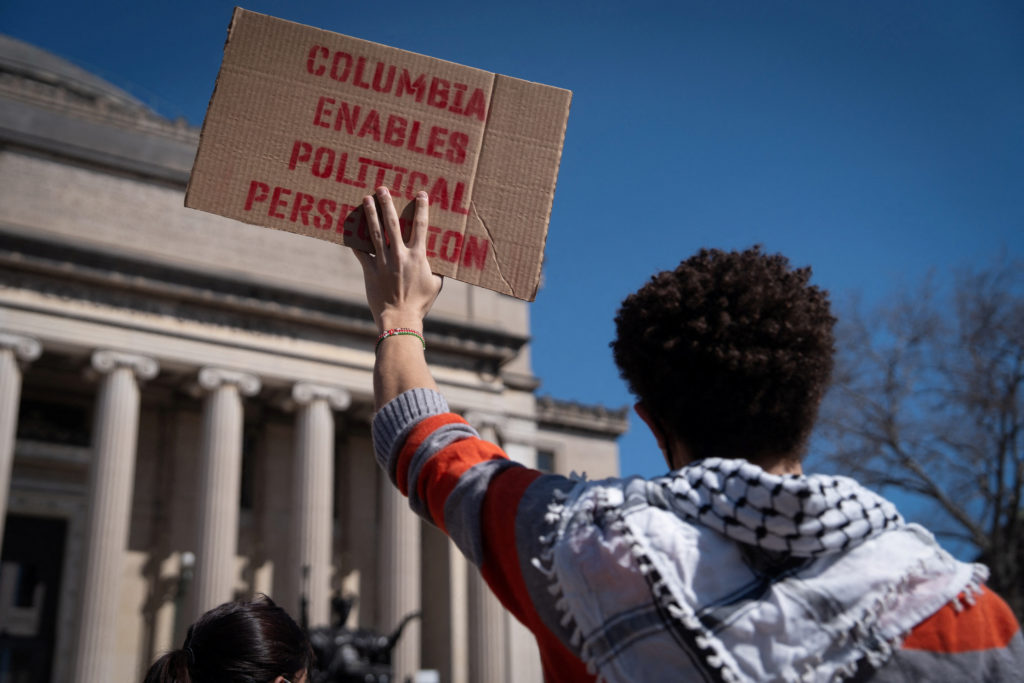Federal funding for public universities all across the country is essential in order for them to function. The money goes to bettering the universities, from administrators to scholarships, the funds are important. However, over the past two months, funding for universities has been facing cuts. The Trump administration is withholding funds from universities all across the country. The only way to continue receiving funding from the government is to comply with the administration’s demands. While these demands vary from school to school, the central theme targets Diversity, Equity, and Inclusion (DEI) programs.
DEI programs are important, as they look to promote the fair treatment and full participation of all people. In a campus setting, DEI programs encourage inclusion, diversify schools, and create a welcoming environment for every student. They do this throughout the admissions process; they make sure all voices are heard, and they support minority groups. These programs are crucial for the success of everyone. According to the American University School of Education, DEI programs help “create a culturally responsive environment that will foster a classroom where students become respectful and understanding of cultures different from their own.” It allows other students to collaborate and work together to get a better understanding of who they are.
Columbia University, along with other universities, has been in the news over the past year for repeated antisemitic acts on their campuses. However, in the past month, Columbia has been the subject of many articles due to the Trump administration revoking 400 million dollars in its funding. According to NBC, the administration sent a letter to Columbia informing them of the suspension of their funding, claiming that it was due to “inaction in the face of persistent harassment of Jewish students.” There have also been repeated protests on both sides of the war in Gaza.
Additionally, the letter came with a list of requirements that the university needed to comply with in order to continue receiving funding. Some of the demands target the antisemitic acts that are repeatedly occurring on campus, specifically, the student-led protests. The administration instituted more parameters on protests, such as no masks and “time, place, and manner rules”. The university had already had time, place, and manner rules in place prior to the letter. In the past, students needed to let the university know in advance of any protests. However, the administration is looking to crack down on when and where these protests can happen.
Along with that, the administration is targeting DEI by cutting educational opportunities. The administration looks to place Columbia’s “Middle East, South Asian, and African Studies Department under academic receivership”. The university had a deadline of March 20, 2025 to meet this requirement, which they complied with. This means that Columbia has begun its process of cutting DEI programs, which includes cutting educational opportunities for many, both in and out of the classroom.
A headline from AP News reads, “Researchers in limbo as Columbia bows to Trump’s demands in bid to restore $400M federal funding.” Days after Columbia’s interim president, Dr. Katrina Armstrong, “bowed” to Trump and agreed to demands, Armstrong resigned her post. Claire Shipman, a co-chair of the Board of Trustees, has been appointed for the role.
As a result of Columbia’s choice to start the dismantling process of its DEI programs, current students and alumni are furious. According to NBC, the alumni are ripping up their diplomas, “in protest of [the] school and leadership.” This has only sparked more protests on the campus, as the students continue to fight for what they believe in, regarding both the university and the war in Gaza.
While I was extremely disappointed to see Columbia beginning the process of dismantling their DEI programs, I wasn’t surprised. The loss of funding would affect crucial departments, including cancer research facilities. 400 million dollars is very important for any university to function. However, I don’t believe that the grounds on which the administration threatened to revoke the funds are genuine. The anti-semitism that has repeatedly appeared on their campus is inexcusable, and the administration did include parameters in the demands that will likely reduce these harassments/crimes. However, the revoking of funds is likely a way to target DEI programs, as the administration is threatening other universities to dispose of their DEI programs; these are just the terms they are using to revoke the programs from Columbia.
While Columbia has received intense pressure from the administration, it has had an effect on other universities as well. On Thursday, March 27, the University of Michigan announced its elimination of the Office of Diversity, Equity, and Inclusion (ODEI) in order to “ensure compliance with President Donald Trump’s executive orders,” according to The Michigan Daily, despite not receiving direct pressure from the administration. This department helps promote the inclusion of its students. The chair of Michigan’s Faculty Senate, Rebekah Modrak, says that this will lead to “the censorship of course and program content.”
The University of Michigan President, Santa Ono, explains that the reason for the elimination of the ODEI was “made in response to last month’s Dear Colleague letter from the Department of Education.” This letter stated that DEI programs are “perpetuating racial stereotypes,” according to The Michigan Daily. The letter essentially threatens to cut federal funding from all universities that keep their DEI programs functioning. While the letter claims that DEI programs promote stereotypes, as previously stated, the elimination of this program is likely to have this exact effect.
Much like Michigan and Columbia, the University of Pennsylvania, the University of Colorado, and Colorado State University have all cut some form of DEI program. Additionally, there are other universities that the administration has withheld funding from: Brown University, Harvard University, the University of Princeton, and the University of Pennsylvania. As of right now, the list is targeting Ivy League schools; however, this list will likely grow, putting more pressure on universities all around the country.
The reduction of antisemitism at Columbia is a very good thing, and the demands included by the administration will hopefully reduce it. However, many of the remaining demands I’m upset about. For example, the suspension of the Middle East, South Asian, and African studies department. Like I said above, this is the administration’s first push towards the dismantling of universities/colleges’ DEI programs. Here’s what this means: if the administration can simply withhold crucial funding as they have done with Columbia, what will stop them from doing this to all other public universities and colleges? They can withhold funding until the universities comply.
Here’s the problem with that: if these educational institutions comply with the administrative demands and get rid of programs and courses that teach diversity and history, so much will be lost. Individuals attend these universities to better themselves, but without the diversification of courses and campuses, it is much harder to understand others. More importantly, these programs teach history, diversity, and inclusion. History helps us understand and learn from our mistakes, however, if it is not being taught, there is nothing to learn from. Similarly, programs (such as the one Columbia is cutting) help the students gain new perspectives and understandings of the world. The restriction of education can be detrimental to our future. Additionally, the money also helps diverse groups of people―whether by ethnicity, race, religion, or economic status―further their education. These programs are put in place to help everyone, yet they are being dismantled. The power of education will be in the hands of the government, giving them the ability to control what you learn, and more importantly, what you don’t learn.








